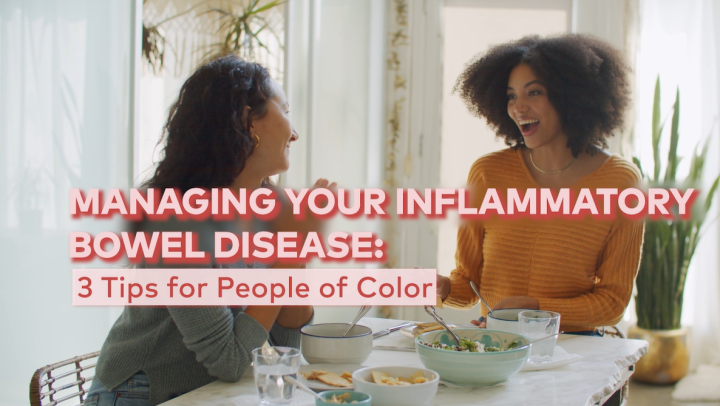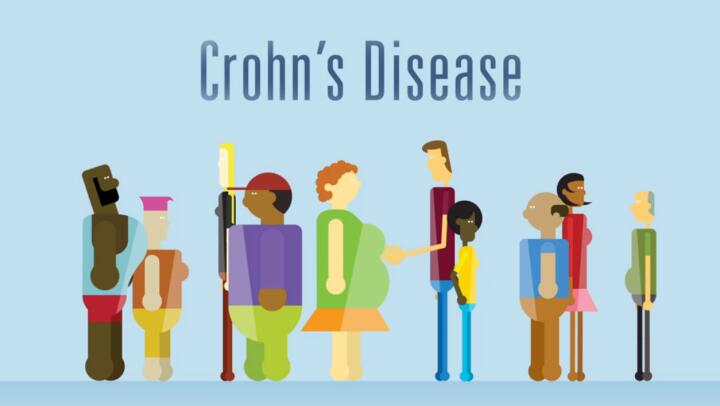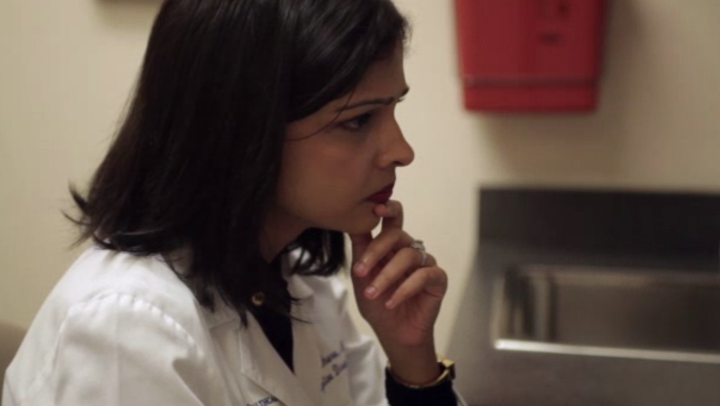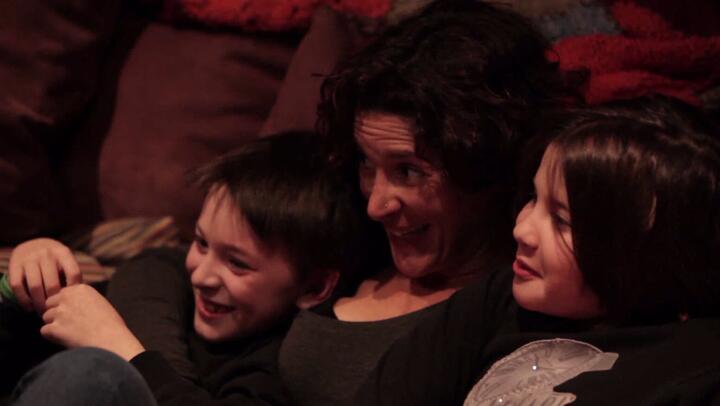7 Myths About Crohn's Disease

Medically Reviewed By William C. Lloyd III, MD, FACS
Written By Evelyn Creekmore on September 22, 2020
-
 Ditch the Fiction—Get the Facts About Crohn’s Disease.Doctors first described Crohn’s disease nearly one hundred years ago. The disease has not always been well understood, even in the medical community. But ongoing scientific research has led to major advances in discovering the cause, developing more effective treatment options, and finding a cure. Separate facts from fiction to help you better understand your symptoms. A better understanding will help you have more informed conversations with your doctor as you partner to achieve the best care for you.
Ditch the Fiction—Get the Facts About Crohn’s Disease.Doctors first described Crohn’s disease nearly one hundred years ago. The disease has not always been well understood, even in the medical community. But ongoing scientific research has led to major advances in discovering the cause, developing more effective treatment options, and finding a cure. Separate facts from fiction to help you better understand your symptoms. A better understanding will help you have more informed conversations with your doctor as you partner to achieve the best care for you. -
 Myth No. 1: Crohn’s disease and irritable bowel syndrome (IBS) are the same thing.The truth is, Crohn’s disease and IBS are completely different conditions. They both affect parts of the gastrointestinal tract and may have the same symptoms such as persistent diarrhea. But that’s where the similarities end. Crohn’s disease causes inflammation in the GI tract, but IBS doesn’t cause inflammation at all. (IBS affects muscle contractions in the colon.) Treatment options for each condition are different, too. It’s important to consult with your doctor to get an accurate diagnosis and appropriate treatment.
Myth No. 1: Crohn’s disease and irritable bowel syndrome (IBS) are the same thing.The truth is, Crohn’s disease and IBS are completely different conditions. They both affect parts of the gastrointestinal tract and may have the same symptoms such as persistent diarrhea. But that’s where the similarities end. Crohn’s disease causes inflammation in the GI tract, but IBS doesn’t cause inflammation at all. (IBS affects muscle contractions in the colon.) Treatment options for each condition are different, too. It’s important to consult with your doctor to get an accurate diagnosis and appropriate treatment. -
-
 Myth No. 2: If you have certain personality traits, you’re more likely to get Crohn’s disease.It was once believed that having certain personality traits, psychological conditions, or strong emotions caused Crohn’s disease, but that’s simply not true. If you’re living with anxiety or depression, neither condition caused your Crohn’s disease. Since doctors first described the disease in 1932, we’ve come a long way in understanding it. The cause of Crohn’s disease is still not known, but ongoing research in the fields of genetics, immunology and microbiology has led to increasingly effective treatment options.
Myth No. 2: If you have certain personality traits, you’re more likely to get Crohn’s disease.It was once believed that having certain personality traits, psychological conditions, or strong emotions caused Crohn’s disease, but that’s simply not true. If you’re living with anxiety or depression, neither condition caused your Crohn’s disease. Since doctors first described the disease in 1932, we’ve come a long way in understanding it. The cause of Crohn’s disease is still not known, but ongoing research in the fields of genetics, immunology and microbiology has led to increasingly effective treatment options. -
 Myth No. 3: Bad eating habits caused your Crohn’s disease.Not so. There’s no evidence that what we eat causes Crohn’s disease. However, you may notice that certain foods or eating habits make your symptoms worse. Keep a food diary to share with your doctor and ask for suggestions. For some people, fiber, hot spices, alcohol, and caffeine may be problem foods. It may also help to eat smaller meals and drink plenty of water. If you’re concerned about your diet, your doctor may refer you to a registered dietician.
Myth No. 3: Bad eating habits caused your Crohn’s disease.Not so. There’s no evidence that what we eat causes Crohn’s disease. However, you may notice that certain foods or eating habits make your symptoms worse. Keep a food diary to share with your doctor and ask for suggestions. For some people, fiber, hot spices, alcohol, and caffeine may be problem foods. It may also help to eat smaller meals and drink plenty of water. If you’re concerned about your diet, your doctor may refer you to a registered dietician. -
 Myth No. 4: Crohn’s disease and smoking are unrelated.It’s true that smoking, on its own, doesn’t cause Crohn’s disease, but it may increase your risk of developing it. If you’re living with Crohn’s disease, smoking may cause more flare-ups and make symptoms worse. While most people living with Crohn’s disease will eventually need surgery, studies have shown those who smoke are more likely to need repeat surgeries. If you smoke, quitting may not be easy, but help is available. Ask your doctor about strategies and support.
Myth No. 4: Crohn’s disease and smoking are unrelated.It’s true that smoking, on its own, doesn’t cause Crohn’s disease, but it may increase your risk of developing it. If you’re living with Crohn’s disease, smoking may cause more flare-ups and make symptoms worse. While most people living with Crohn’s disease will eventually need surgery, studies have shown those who smoke are more likely to need repeat surgeries. If you smoke, quitting may not be easy, but help is available. Ask your doctor about strategies and support. -
 Myth No. 5: There’s nothing you can do about embarrassing symptoms.The best thing you can do about the symptoms of Crohn’s disease is partner with your doctor on an effective treatment plan. Your doctor can also share tips based on his or her experience helping many other people manage symptoms like yours. (About half a million adults and children in the United States are living with Crohn’s disease.) Plan ahead for time away from home by learning where restrooms are and bringing along back-up underwear, wet wipes, and large freezer bags for soiled clothes.
Myth No. 5: There’s nothing you can do about embarrassing symptoms.The best thing you can do about the symptoms of Crohn’s disease is partner with your doctor on an effective treatment plan. Your doctor can also share tips based on his or her experience helping many other people manage symptoms like yours. (About half a million adults and children in the United States are living with Crohn’s disease.) Plan ahead for time away from home by learning where restrooms are and bringing along back-up underwear, wet wipes, and large freezer bags for soiled clothes. -
-
 Myth No. 6: Crohn’s disease rarely affects children.Actually, doctors treat many children and teens for Crohn’s disease, and about 20 to 30% of people living with Crohn’s disease were diagnosed before age 20. Many young people with Crohn’s disease develop complications that stunt their growth or delay puberty. Teens may have an especially hard time coping with symptoms. Talk with your doctor about ways to get extra support from friends, teachers, and other teens living with Crohn’s disease.
Myth No. 6: Crohn’s disease rarely affects children.Actually, doctors treat many children and teens for Crohn’s disease, and about 20 to 30% of people living with Crohn’s disease were diagnosed before age 20. Many young people with Crohn’s disease develop complications that stunt their growth or delay puberty. Teens may have an especially hard time coping with symptoms. Talk with your doctor about ways to get extra support from friends, teachers, and other teens living with Crohn’s disease. -
 Myth No. 7: If you’re depressed while living with Crohn’s disease, you should just get over it.Living with a chronic condition isn’t just physical. It’s mental, too. Dealing with the symptoms of Crohn’s disease may lead to depression. Like Crohn’s disease, depression is a real condition that should be treated by a doctor. For those already living with depression before being diagnosed with Crohn’s disease, coping may be harder. Share your feelings with your doctor and communicate any other conditions you may have. You may benefit from joining a support group or talking with a therapist.
Myth No. 7: If you’re depressed while living with Crohn’s disease, you should just get over it.Living with a chronic condition isn’t just physical. It’s mental, too. Dealing with the symptoms of Crohn’s disease may lead to depression. Like Crohn’s disease, depression is a real condition that should be treated by a doctor. For those already living with depression before being diagnosed with Crohn’s disease, coping may be harder. Share your feelings with your doctor and communicate any other conditions you may have. You may benefit from joining a support group or talking with a therapist.
Crohn's Disease Myths | 7 Myths About Crohn's Disease



































